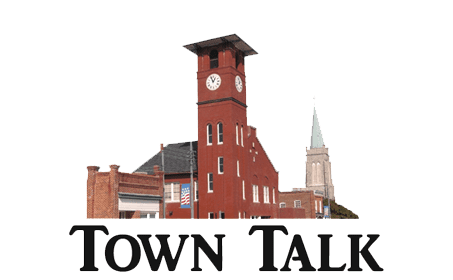Henderson Masonic Lodge 229 Fish Fry
/by John C. RoseHenderson Masonic Lodge 229 Fish Fry continues today until 7 p.m. Eat in or take out. $8.00 for freshly fried fish plus potato salad, slaw and hush puppies. If you eat in, a drink is included.
The location is Raleigh Road in Henderson, across from Supply Line Country Market and M.R. Williams.
Monies raised with help local civic causes plus the Mason Home for Children in Oxford and will help with roof repairs to the local Masonic Lodge building.
The Masonic Club of Henderson is 150 years old, and this is the second annual fish fry. This event is being put on by many of the same Shriners that have been doing the annual Henderson Shrine Club fish fry for more than 50 years.
If you would like to see more, check out our Facebook Live post on facebook.com/wizsradio.
The Last Struggle of the Summer: Gas Shortage in NC
/by WIZS Staff“The Last Struggle of the Summer: Gas Shortage in NC” By: Noah Whittacre, WIZS Staff
With the summer nearing to a close, we hoped for a smooth ride right on into the incoming fall, but such is not the case, and one more major problem has forced it’s way into the summer. On Saturday, September 17th, Governor Pat McCrory declared N.C. to be in a state of emergency due to fuel shortage. This shortage was caused by a leak in the Colonial Pipeline, which runs from Houston, TX to Linden, NY. The leak occurred sometime before Friday, September 9th and was discovered that day.
It is estimated that over 250,000 gallons of gasoline leaked out before it was shut off. This leak has affected six southern states and has caused the average gas price in the south to raise 10 cents per gallon on average, with the highest raise at 16 cents per gallon in Georgia. As for North Carolina, gas prices rose on average 10 cents per gallon from Friday to Saturday. The gas shortage was hitting our state as soon as Saturday and many gas stations in Henderson were out of gas by Saturday night. Oxford has seen similar shortages and price hikes as well.
Henderson and Oxford have surely been impacted by the leak, but larger cities in metropolitan areas have seen a greater struggle. Right now in Raleigh, Durham, Chapel Hill, and Greensboro, it is a common sight to see cars lined up in the dozens, waiting for their opportunity to fuel up. Some gas stations in these larger cities have been rationing their gas sales to $10 per customer per visit, but most stations are out completely. In rare instances, some stations have been “Price Gouging”, a practice that allows the business owners to hike up the price unreasonably due to shortage or other circumstances. It has been reported that some stations have had prices as high as $4.00 per gallon and in one rare case $5.89 per gallon. This practice is illegal and these business will face the proper punishment when all of this is brought under control again.
Things may seem bleak and continuing to go downhill but there is an end in sight to this shortage. On Tuesday morning, in a press conference, officials from the Colonial Pipeline announced that their pipeline bypass had completed construction and passed all necessary function tests. This means that normal gas flow should be restored soon and gas supply and prices should finish normalizing by the end of the week or, at the latest, the beginning of next week. For the next few days there are things you can do to save money and conserve fuel until everything is back to normal.
First is to shop around for the best price, often times a station with better prices is just around the corner. Talk to your friends and neighbors to see who has the best prices in town, even one cent lower per gallon will help to save money in the long run.
The second tip to saving money is to conserve fuel. This can be accomplished by accelerating gradually and anticipating stops to slow down gradually as well. Use your air conditioning in the vehicle as opposed to rolling your windows down as this puts less drag for your car which in turn puts less strain on your engine.
The final tip is to make sure your tires have the correct air pressure, as this helps keep your gas mileage higher. If you commute to the Triangle or to Durham for work, fill up in Henderson, Creedmoor, Butner, or Oxford as opposed to trying to find gas in those larger cities as prices are higher and supply is lower there. If you need to find gas in those larger cities, certain media outlets such as the Mix 101.5 radio station have been including segments in their programming to let people in our larger cities know where to find gas stations that have fuel as part of a community call in segment.
Remember to conserve gas as much as possible and to expect things to normalize by the end of the week. Spread the word on the best prices in town and communicate with your family, friends, and neighbors to help each other out, and we’ll get through crisis as a community.



